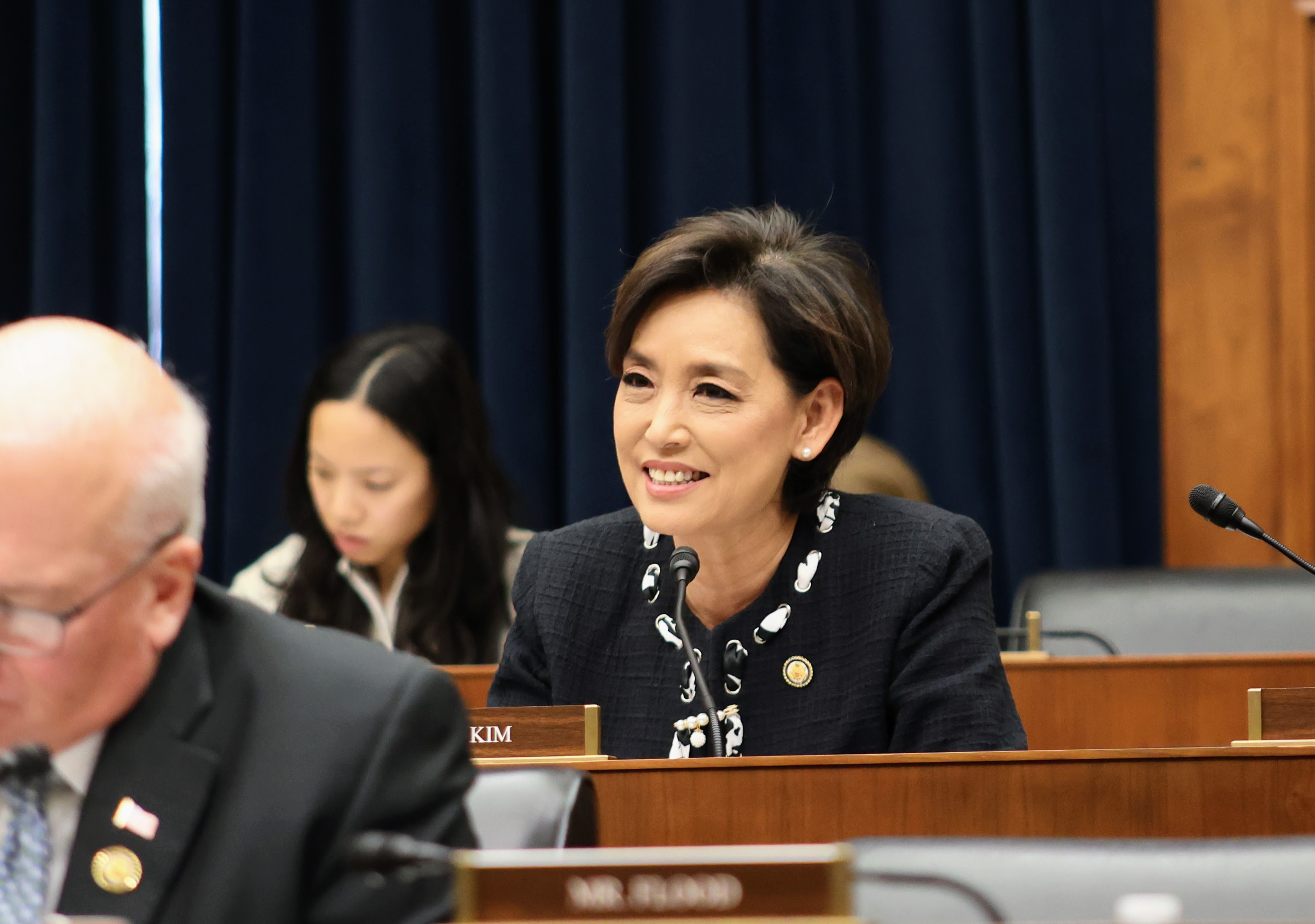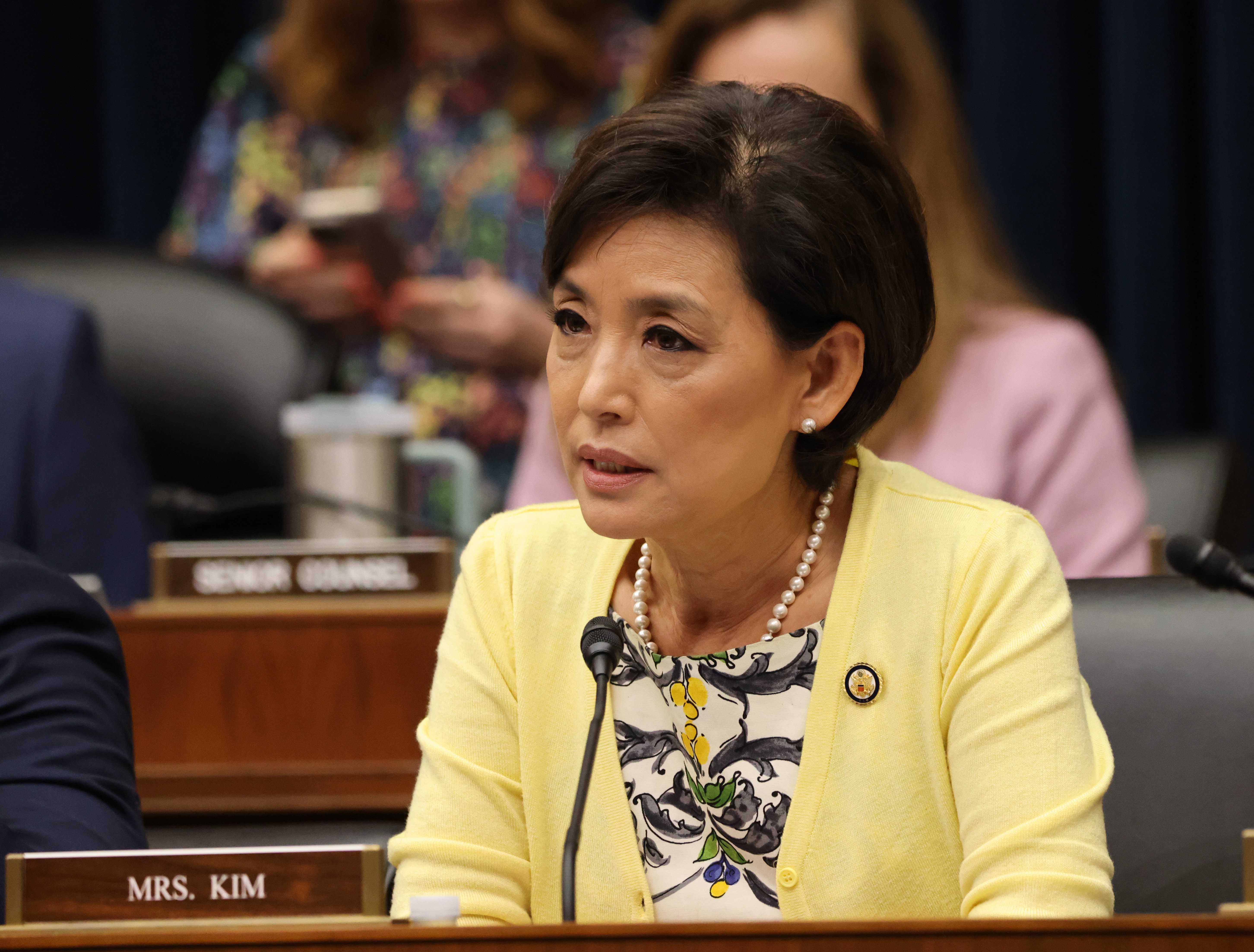Last year, when the people who now represent Orange County in Congress were on the campaign trail, all seven said getting coronavirus relief would be a top priority during their first days in office.
One month in, they ’re trying to deliver.
At least three local House members have pitched legislation aimed at everything from increasing mental health funding during the pandemic to creating a grant program that would help businesses buy protective gear. Members also have sent letters and held online information sessions focused on COVID-19 relief. And they’re all jockeying to make sure issues they’re passionate about are included in the $1.9 trillion pandemic relief package that’s being debated in the White House and in Congress.
Orange County’s most legislatively productive representative so far this session, at least when it comes to coronavirus relief, is Rep. Katie Porter. Now in her second term, the Democrat from Irvine has introduced several pandemic-related bills and reintroduced others that last year passed the House but failed to make it through the Senate.
Porter, on Jan. 28, reintroduced the Stopping the Mental Health Pandemic Act, which would offer $50 million in grants to address mental health needs caused by COVID-19. The money, which would be available through next year to local governments and health organizations, could be used for medical supplies, worker training and beefed-up programs to prevent suicide, among other things. The bill has drawn bipartisan support, including from local Reps. Alan Lowenthal, D-Long Beach, and Young Kim, R-La Habra.
In January, Porter wrote a letter to America’s Health Insurance Plans, a health industry trade group, calling for insurance companies to guarantee they won’t charge Americans for COVID-19 vaccines.
Federal law requires full coverage for certain immunizations. But not all insurance companies have said that they’ll classify COVID-19 vaccines as immunizations, and many have restrictions on who can administer the vaccine and where. In her letter, Porter requested an immediate waiver on all of these costs and restrictions.
Porter noted that last year she secured a commitment from the Trump administration that all COVID-19 testing would be free, but Americans still found themselves on the hook for testing bills.
“We cannot allow the same to happen for vaccines,” Porter said. “If patients have to worry about whether or not getting a vaccine is covered, we run a real risk of people opting out of getting vaccinated and this crisis continuing for even longer.”
So far, no insurance carriers have indicated interest in signing onto Porter’s plan that would guarantee full vaccine coverage, according to her office. And the AHIP refused to accept the language Porter requested, leaving open some loopholes that she feels could exempt many or even most insurers from fully covering COVID-19 vaccines.
Porter also introduced new legislation Jan. 25 to reduce healthcare costs for seniors by protecting them from surprise Medicare penalties. And on Feb. 3, she reintroduced a bill to remove paid off or settled medical debt from a patient’s credit report.
On Tuesday, just over one month since she was sworn in, Kim, who represents the 39th District, joined Democratic Rep. Abigail Spanberger of Virginia to introduce the Getting Americans Safely Back to Work Act. Their plan would create a $1 billion grant program to help businesses buy personal protective equipment, get rapid testing equipment and implement other safety measures.
The director of the Centers for Disease Control and Prevention would administer the program in partnership with state and local health departments. Priority would go to slowing coronavirus cases among minority groups, who are disproportionately represented in essential worker settings. And a quarter of the funds would be set aside for small businesses.
Longtime Rep. Linda Sánchez, D-Whittier, on Monday joined Rep. Tony Cárdenas, D-Los Angeles, to reintroduce the Stronger Medicaid Response to the COVID—19 Pandemic Act, which would let Medicaid programs pay for treatment and vaccines for uninsured Americans.
“Denying access to lifesaving treatment because of immigration or insurance status is inhumane, and it puts everyone at risk,” Sánchez said. “This bill will help many, including essential workers who are putting themselves at risk every day to get our communities and economy through this pandemic.”
Sánchez also on Feb. 3 reintroduced the Facilitating Virtual Visitation for Nursing Home Residents Act. The bill, which Porter cosponsored, would require skilled nursing facilities to provide a way for residents to have virtual visits with loved ones during the pandemic using technology such as Zoom or Facetime.
Nursing homes have been scrambling during the pandemic to make such services available, and the American Health Care Association/National Center for Assisted Living said it supports Sánchez’s bill.
On Tuesday, Sánchez also introduced the Pandemic Health Care Improvement Act, which would let unemployed Americans who buy insurance through the Affordable Care Act Health Insurance Marketplace get a tax credit equal to their monthly premiums.
While Orange County’s other four representatives haven’t authored any specific COVID-19 relief bills in the month since the session began, they’ve cosponsored and voted on related legislation, helped constituents in their districts get individual relief, and pitched amendments to be included in the federal relief bill.
Lowenthal, for example, has been focused on making sure workers at the Port of Long Beach get aid and vaccine priority in the next relief package.
Reps. Lou Correa, D-Anaheim, and Mike Levin, D-San Juan Capistrano, signed a letter urging House Speaker Nancy Pelosi to make sure the bill expands healthcare tax credits. And Levin also is pushing for the package to include direct funding for smaller counties and cities, plus $10 billion to the Substance Abuse and Mental Health Services Administration.
Freshman GOP Rep. Michelle Steel of Seal Beach has been focused on getting students back in classrooms. Last week, she spoke on the House floor to support the Reopen Schools Act, which would make sure that the $54 billion in federal coronavirus aid set aside for education in the COVID-19 relief bill would go only to schools that have re-opened for in-person instruction.
“In-person learning can be done safely with the right precautions and safety measures,” Steel said, pointing to Orange County schools that were permitted to reopen in early September.
The Democratic-controlled House refused to reconsider the bill.
Steel also took the lead in a state issue — signing a letter to Gov. Gavin Newsom that’s seeking details about $11 billion in coronavirus-related relief that’s reportedly been paid to prisoners and others who should not have received money from California’s Employment Development Department.
Steel and Kim both voted with Republicans against using the budget reconciliation process to speed the next relief package, since it will let Congress pass the bill without getting any GOP support in the Senate if all Democrats are on board.
But while the larger relief bill is being negotiated, Kim on Friday joined the Problem Solvers Caucus to introduce a standalone $160 billion vaccine distribution package. It would fund a national vaccine program, increased testing, protective gear for first responders and other costs directly related to fighting COVID-19.
“Congress needs to show the American people that we can work together to bring bipartisan relief during COVID-19,” Kim said. “We need vaccine funding now and cannot afford to wait on negotiations for a larger stimulus package.”




